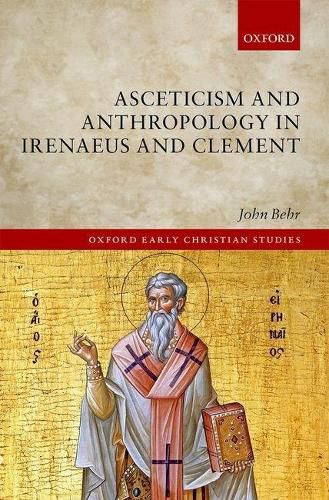Readings Newsletter
Become a Readings Member to make your shopping experience even easier.
Sign in or sign up for free!
You’re not far away from qualifying for FREE standard shipping within Australia
You’ve qualified for FREE standard shipping within Australia
The cart is loading…






Asceticism and Anthropology in Irenaeus and Clement examines the ways in which Irenaeus and Clement understood what it means to be human. By exploring these writings from within their own theological perspectives, John Behr also offers a theological critique of the prevailing approach to the asceticism of Late Antiquity. Writing before monasticism became the dominant paradigm of Christian asceticism, Irenaeus and Clement afford fascinating glimpses of alternative approaches. For Irenaeus, asceticism is the expression of man living the life of God in all dimensions of the body, that which is most characteristically human and in the image of God. Human existence as a physical being includes sexuality as a permanent part of the framework within which males and females grow towards God. In contrast, Clement depicts asceticism as man’s attempt at a godlike life to protect the rational element, that which is distinctively human and in the image of God, from any possible disturbance and threat, or from the vulnerability of dependency, especially of a physical or sexual nature. Here human sexuality is strictly limited by the finality of procreation and abandoned in the resurrection. By paying careful attention to these two writers, Behr offers challenging material for the continuing task of understanding ourselves as human beings.
$9.00 standard shipping within Australia
FREE standard shipping within Australia for orders over $100.00
Express & International shipping calculated at checkout
Asceticism and Anthropology in Irenaeus and Clement examines the ways in which Irenaeus and Clement understood what it means to be human. By exploring these writings from within their own theological perspectives, John Behr also offers a theological critique of the prevailing approach to the asceticism of Late Antiquity. Writing before monasticism became the dominant paradigm of Christian asceticism, Irenaeus and Clement afford fascinating glimpses of alternative approaches. For Irenaeus, asceticism is the expression of man living the life of God in all dimensions of the body, that which is most characteristically human and in the image of God. Human existence as a physical being includes sexuality as a permanent part of the framework within which males and females grow towards God. In contrast, Clement depicts asceticism as man’s attempt at a godlike life to protect the rational element, that which is distinctively human and in the image of God, from any possible disturbance and threat, or from the vulnerability of dependency, especially of a physical or sexual nature. Here human sexuality is strictly limited by the finality of procreation and abandoned in the resurrection. By paying careful attention to these two writers, Behr offers challenging material for the continuing task of understanding ourselves as human beings.